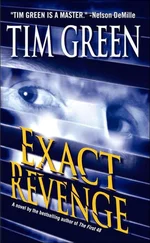Tom Boyle - East is East
Здесь есть возможность читать онлайн «Tom Boyle - East is East» весь текст электронной книги совершенно бесплатно (целиком полную версию без сокращений). В некоторых случаях можно слушать аудио, скачать через торрент в формате fb2 и присутствует краткое содержание. Жанр: Современная проза, на английском языке. Описание произведения, (предисловие) а так же отзывы посетителей доступны на портале библиотеки ЛибКат.
- Название:East is East
- Автор:
- Жанр:
- Год:неизвестен
- ISBN:нет данных
- Рейтинг книги:5 / 5. Голосов: 1
-
Избранное:Добавить в избранное
- Отзывы:
-
Ваша оценка:
- 100
- 1
- 2
- 3
- 4
- 5
East is East: краткое содержание, описание и аннотация
Предлагаем к чтению аннотацию, описание, краткое содержание или предисловие (зависит от того, что написал сам автор книги «East is East»). Если вы не нашли необходимую информацию о книге — напишите в комментариях, мы постараемся отыскать её.
, praised by
in
as "one of the most exciting young fiction writers in America," the result is a sexy, hilarious tragicomedy of thwarted expectations and mistaken identity, love, jealousy, and betrayal.
East is East — читать онлайн бесплатно полную книгу (весь текст) целиком
Ниже представлен текст книги, разбитый по страницам. Система сохранения места последней прочитанной страницы, позволяет с удобством читать онлайн бесплатно книгу «East is East», без необходимости каждый раз заново искать на чём Вы остановились. Поставьте закладку, и сможете в любой момент перейти на страницу, на которой закончили чтение.
Интервал:
Закладка:
Irving briefly extricated himself from the explosion of Jane’s hair and gave her in return the great gleaming toothy Thalamus grin and said something that got them all laughing—Ruth didn’t quite catch it, but she knew from the tone that it was something winning, small tribute to the modesty and humility of La Dershowitz, the artist, the sharer, the humble organ of her work. She went on—at length, too much length, she would see that in retrospect—with an introduction to this piece as well, and then she read a lengthy section that consisted in its entirety of an interior monologue. The wife of the second couple—Babe, her name was and she was thir-tyish and delicately beautiful—was peeling shrimp and pounding octopus for a bouillabaisse and examining her unfulfilled life with Dexter, her lawyer husband, and the as yet unconsummated passion she felt for Marvel, the lawyer husband of her best friend Clarice, who together constituted the first couple. It was a story that featured more than a soupçon of sex—the story the Atlantic had turned down for its steaminess, in fact—but Ruth steered clear of it, selecting the section she did precisely because it was the only part of the piece that was relatively free of it. Jane had given them nothing but sex and Ruth had responded with her selection from “Two Toes”—no reason for overkill. Besides, the last piece, the tour de force and climax of the evening, was saturated with it.
She found herself drifting a bit during the “Sebastopol” selection—she was right there, reading carefully and with the proper lack of animation—but her mind took off on her, sailing back to the early evening when she was getting ready and Sax had called from Ciceroville. “Sax,” she’d gasped into the phone, “are you all right?” Brie and Sandy—were they a thing?—had been sitting there on the window seat in the foyer, chatting about editors, astrological signs and writers they knew mutually who’d gone to fat, baldness and loss of affect, and they raised their voices to give her some privacy. It was the quintessential La Dershowitz moment, audience and all—this was real drama, real life, her lover in jail, a manhunt going on, the press beating at the windows (she’d had calls from six newspapers already that afternoon).
“I’m fine,” he said. “Stratton had me out of here in two minutes and he’s slapping a false-arrest suit on them, all of them”—he paused to draw a long disgusted breath—“but still he thinks we ought in good faith to deal with them, you know, cooperate. They’ve got nothing on us—Jesus, I’m talking like somebody in a movie or something—we didn’t do anything wrong, and they’re sure to drop the charges and beg us to withdraw the suit and all that, but still Stratton says we’ve got to cooperate.”
“But Sax”—her voice was butter, honey, frankincense and myrrh—“why you? You’re totally innocent, they know that.”
“Abercorn’s just being a prick, is all. He thinks we—you and I—have something going with this Japanese kid and that somehow we got him out of that old cell out back of Patsy’s studio and hustled him into the Mercedes—and we didn’t, did we, Ruth?”
“I love you, Sax,” she whispered. It was a signal. When someone says “I love you,” you say: “I love you too.” It’s like hello and goodbye, how are you and what’s happening? Saxby didn’t respond. “Sax,” she repeated, “I love you.”
“I love you too,” he said finally, but there was no conviction in it and that scared her.
“I told you, Sax,” she said, “I swear it: I had nothing to do with it. All I want to see is Hiro Tanaka in jail and this whole ordeal over with.”
That seemed to mollify him. He was going to stay down there at the motel—he was worried about his fish: yes—and the spark leaped back into his voice, he was her Sax, boyish and enthused—he’d got them! They were out on Billy’s Island in a couple of buckets and he hadn’t had time to set up the oxygenator and he was going back out there first thing in the morning. After he met her, of course. She was coming, wasn’t she?
“Yes, Sax,” she whispered, “of course. I’d do anything for you.” And then her voice had faded away almost to nothing. “You know that.”
And so for a moment—a long moment, two or three pages at least—she was reading, but she wasn’t focused, not fully. She came back to herself on the final page and took the story out with a muted, unpretentious, nontheatrical flair. She looked up. Smiled. The applause was like the faintest spatter of rain in the desert. Her fellow colonists looked grim, haggard. Laura Grobian might have been the survivor of a train wreck, Orlando Seezers was making some sort of peculiar clucking or humming noise deep in his throat, Sandy looked as if he’d just woken up. Had she gone on too long? The thought flitted into her head and she dismissed it—after all, the main event, the pièce de résistance, was yet to come. They’d had their cake, and now it was time for the icing.
Ruth trod delicately with “Of Tears and the Tide,” trying to walk the fine line between capitalizing on the dramatic events on the patio two nights ago (and her attendant seduction of Hiro, Abercorn and the sheriff and her victory over them all), and emphasizing in her every phrase and gesture that she, unlike the histrionic Shine, was an artist toiling away at the deep stuff of fiction. Her introduction was like a chat with a sick friend. It was warm, intimate, unassuming, and it alluded to the events of the past few days (and the preceding weeks too) without directly mentioning Hiro or Saxby or the ceaselessly ringing phone in the foyer or the Clinch County Jail. She mentioned the Japanese, though, mentioned them repeatedly. Was she an expert? Did she have direct, hands-on knowledge? She gave them her mysterious smile, just as she’d planned, and then she began to read.
Halfway through the story Orlando Seezers began to snore. It was nothing outrageous, no tromboning of the breath through constricted nostrils, no deep flatulent blasts from the bellows of the lungs, but snoring nonetheless. Ruth glanced up from the page. Seezers was flung back in the wheelchair as if he’d been shot, his wiry goatee thrust to the heavens, the little plaid cap he never removed clinging to his scalp in defiance of gravity. His snores were soft, almost polite, but audible for all that—and everyone was aware of them.
Everyone who was awake, that is. When Ruth looked up she was shocked. Septima was nodding in her chair. Laura Grobian had snapped off the light beside her and drawn a thin comforter up over her shoulders, the famous haunted eyes staring out on nothing. Brie’s head had come to rest on Sandy’s shoulder; Sandy seemed to be having trouble with his lower lip; Ina and Regina looked terminally bored. In front, on the sofa, Irving was struggling, Teitelbaum looked embarrassed—should she poke Orlando or not?—and Jane, Jane looked triumphant.
Ruth caught herself. She glanced at the grandfather clock in the corner—no, it couldn’t be—and realized with dawning horror that she’d been reading for something like two and a half hours. “My god,” she gasped, and for the first time that night her voice achieved some animation. “I’m so—I didn’t realize how long I’ve gone on …” A few of the colonists, sniffing change, sniffing blood, struggled up in their seats. “Well,” Ruth murmured, covering herself as best she could but already hearing the new billiard room shtik— Ruth’s reading? Yeah, it was like three months on the chain gang— “you’ve been very patient and I thank you all.”
Dazed, the colonists shook themselves, shuffled their feet, rubbed their blasted eyes. Irving started up the applause—she couldn’t believe it, the love she’d felt for them earlier, the joy, and now all she felt was shame and mortification and hate: she hadn’t even finished—and a feeble stunned sort of involuntary applause startled the room into wakefulness. She could read it in their eyes— cocktails, they were thinking, or maybe just one, and then bed. Irving rose to congratulate her; Septima’s head jerked up and the milky gray eyes struggled to come into focus.
Читать дальшеИнтервал:
Закладка:
Похожие книги на «East is East»
Представляем Вашему вниманию похожие книги на «East is East» списком для выбора. Мы отобрали схожую по названию и смыслу литературу в надежде предоставить читателям больше вариантов отыскать новые, интересные, ещё непрочитанные произведения.
Обсуждение, отзывы о книге «East is East» и просто собственные мнения читателей. Оставьте ваши комментарии, напишите, что Вы думаете о произведении, его смысле или главных героях. Укажите что конкретно понравилось, а что нет, и почему Вы так считаете.











